Leadership and Governance: Exxon Mobil Case Study Analysis Report
VerifiedAdded on 2022/10/06
|7
|942
|3
Case Study
AI Summary
This case study analyzes Exxon Mobil's approach to leadership, governance, and corporate social responsibility, particularly in response to shareholder concerns regarding environmental impact and the need for renewable energy initiatives. The study examines the arguments of shareholders who advocated for reduced greenhouse gas emissions and increased investment in alternative fuels. It highlights the conflict between the company's traditional focus on oil and gas reserves and the growing demand for sustainable practices. The analysis emphasizes the importance of corporate social responsibility and the impact of stakeholder perceptions on a company's financial health and operational efficiency. It also suggests strategies for Exxon Mobil to integrate green technologies and renewable resources into its operations to reduce environmental impact and improve long-term sustainability. The report stresses the role of leadership in managing these challenges and the significance of research and development in driving innovation in the energy sector.
1 out of 7
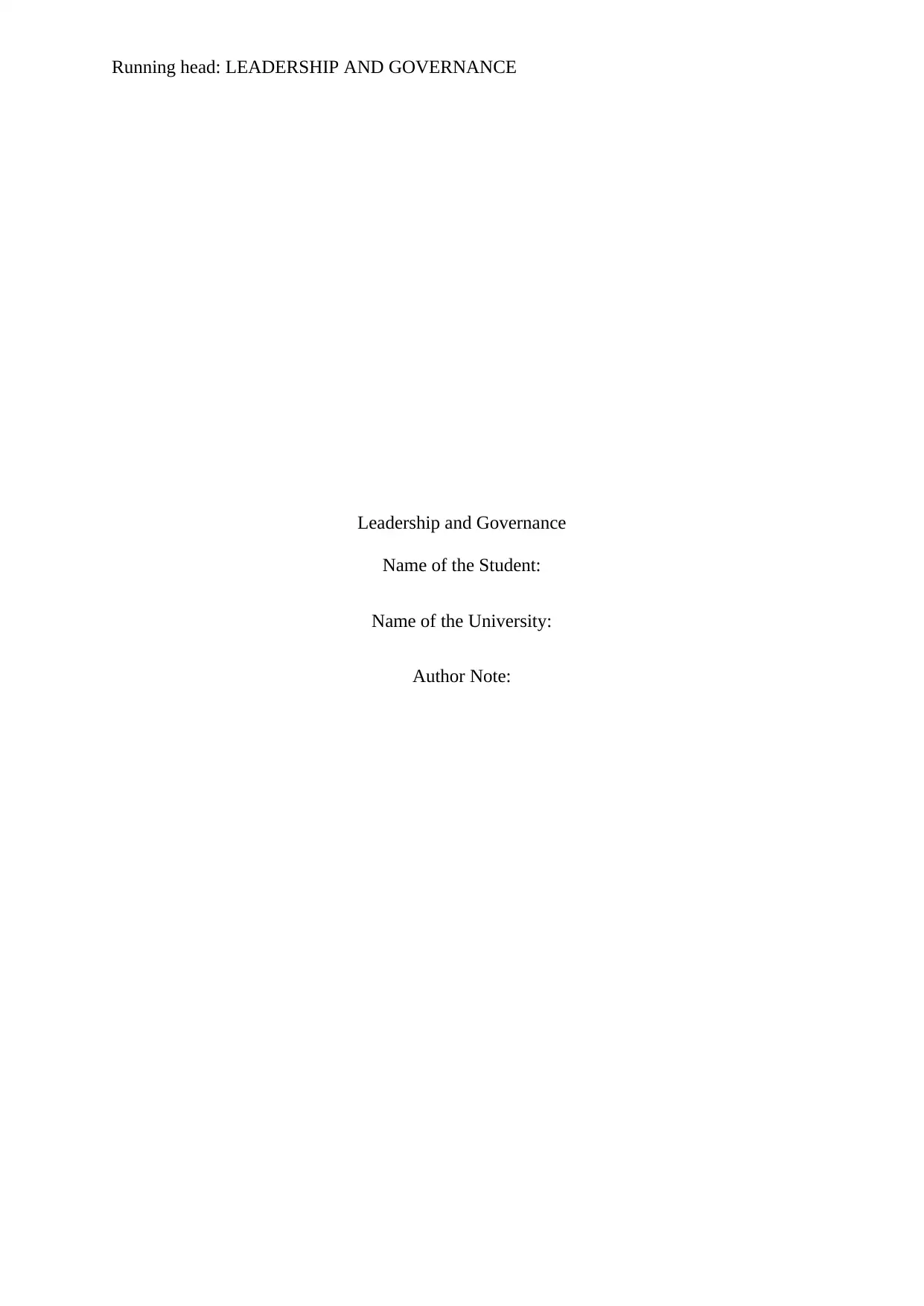
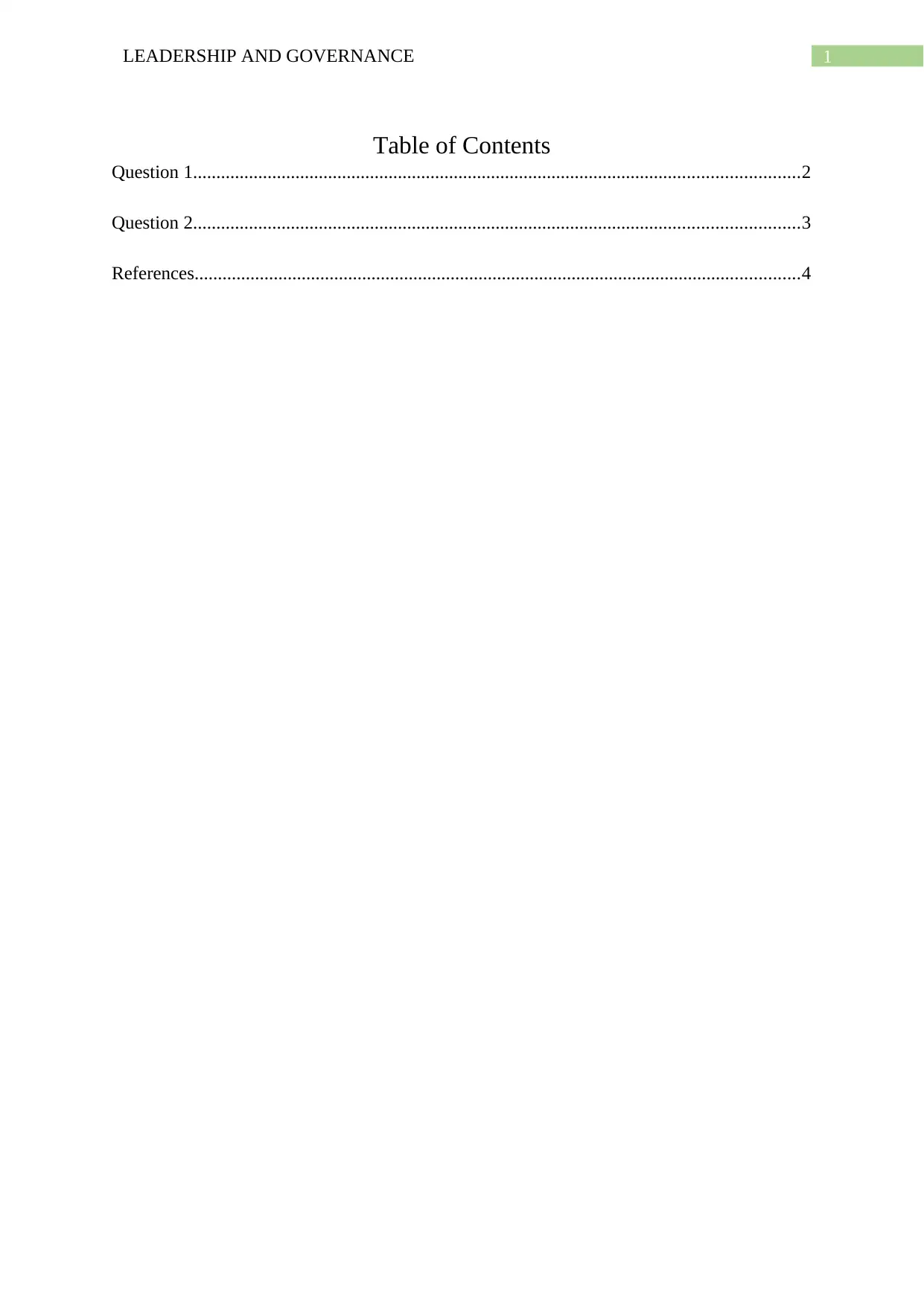
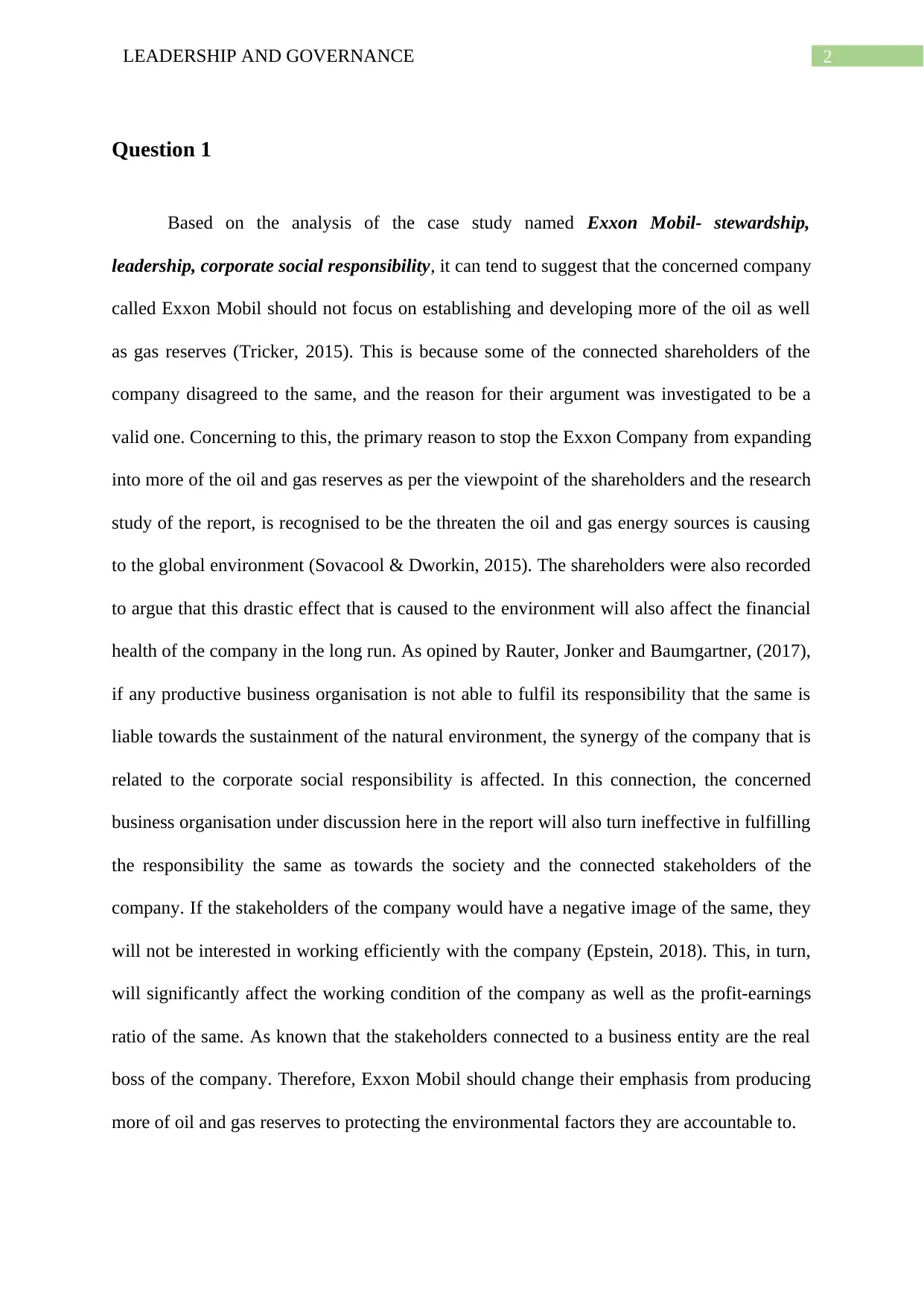


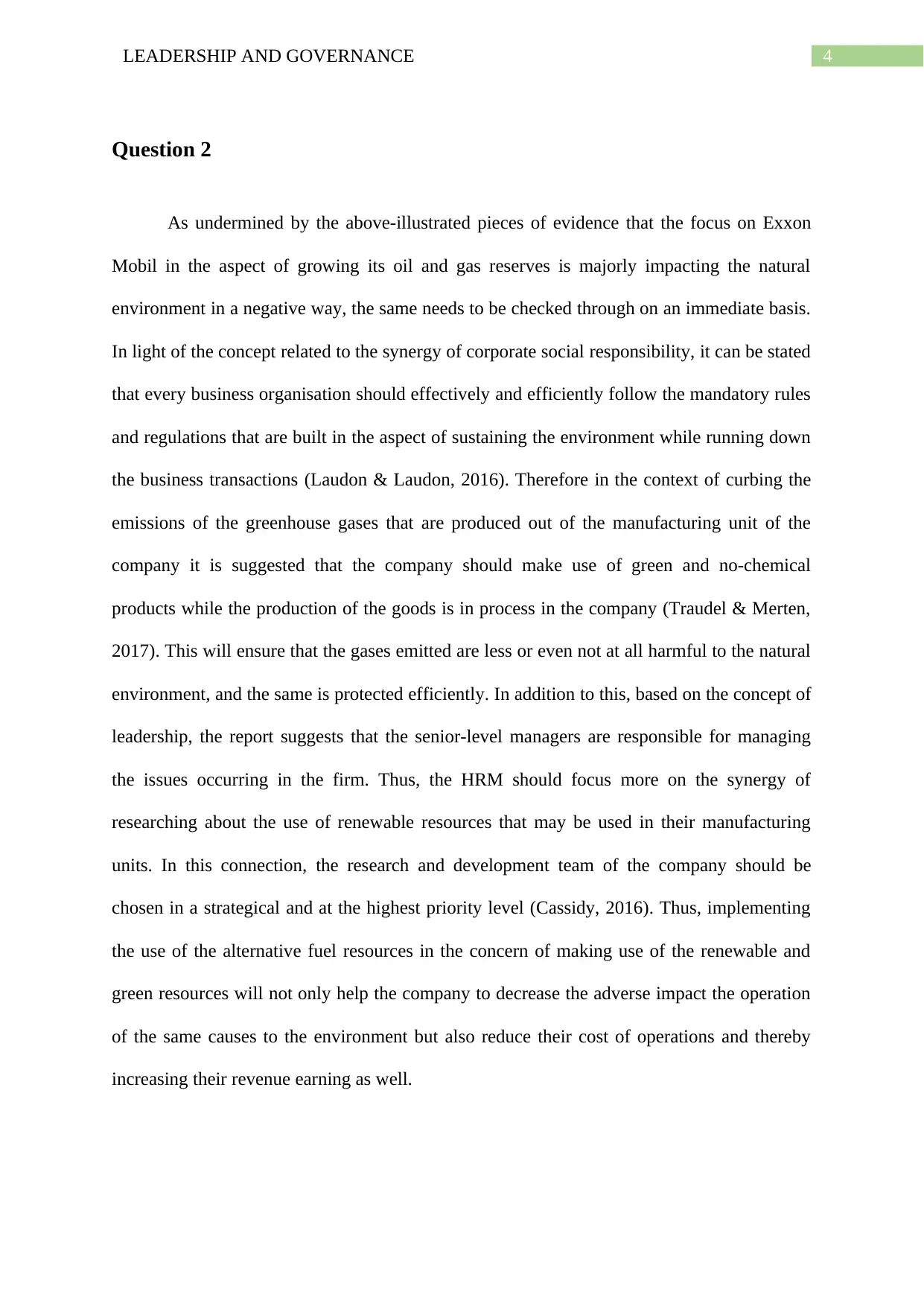

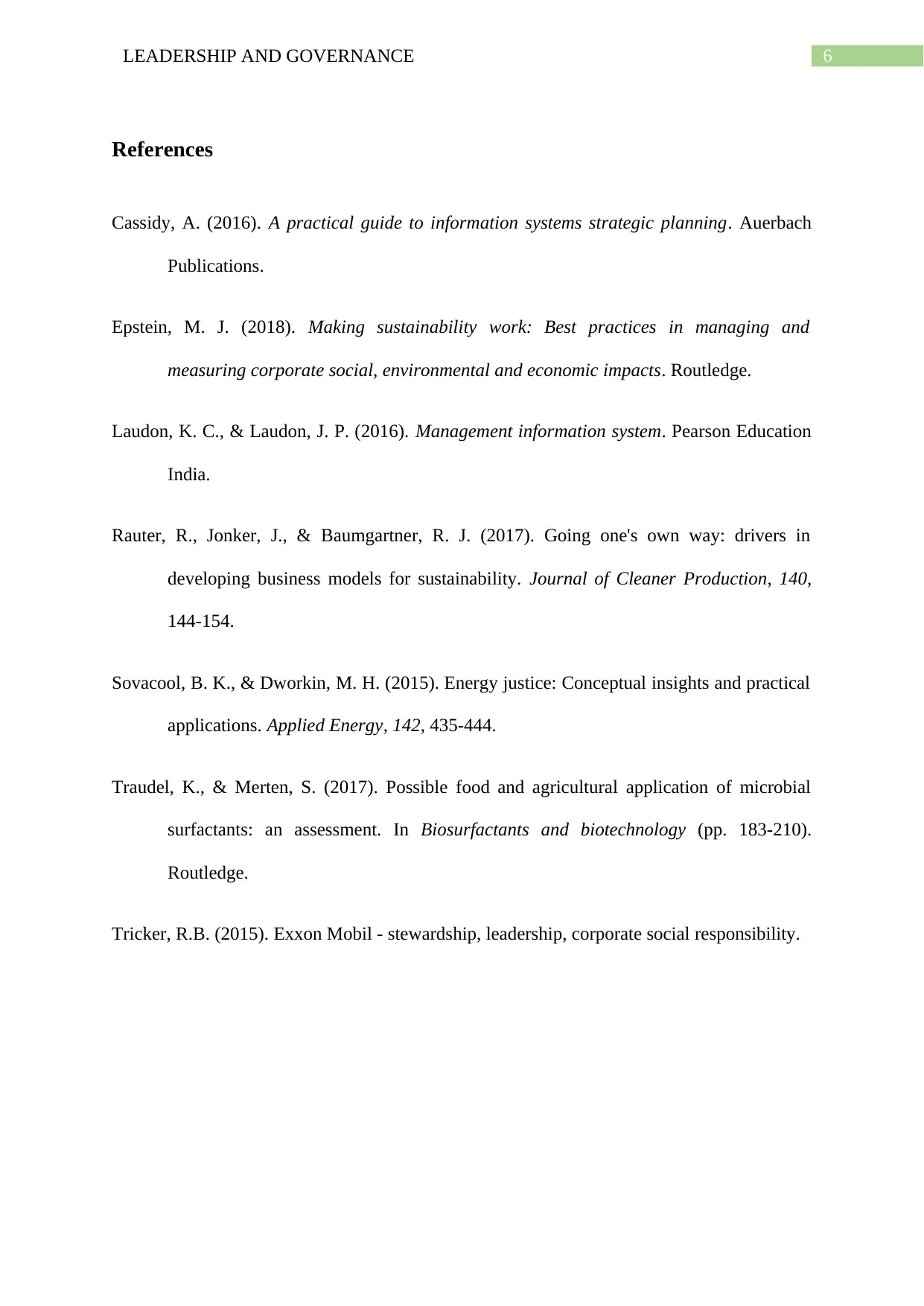





![[object Object]](/_next/static/media/star-bottom.7253800d.svg)